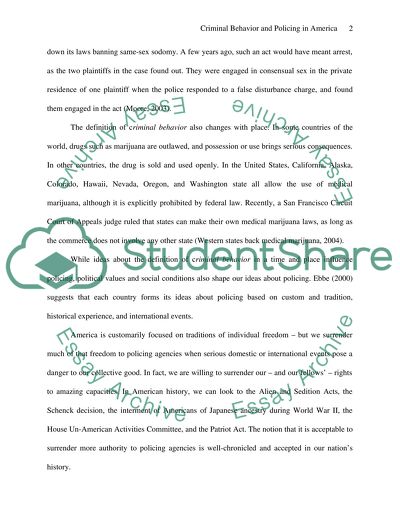Cite this document
(“Criminal Behavior and Policing in America Essay”, n.d.)
Criminal Behavior and Policing in America Essay. Retrieved from https://studentshare.org/law/1524507-criminal-behavior-and-policing-in-america
Criminal Behavior and Policing in America Essay. Retrieved from https://studentshare.org/law/1524507-criminal-behavior-and-policing-in-america
(Criminal Behavior and Policing in America Essay)
Criminal Behavior and Policing in America Essay. https://studentshare.org/law/1524507-criminal-behavior-and-policing-in-america.
Criminal Behavior and Policing in America Essay. https://studentshare.org/law/1524507-criminal-behavior-and-policing-in-america.
“Criminal Behavior and Policing in America Essay”, n.d. https://studentshare.org/law/1524507-criminal-behavior-and-policing-in-america.


